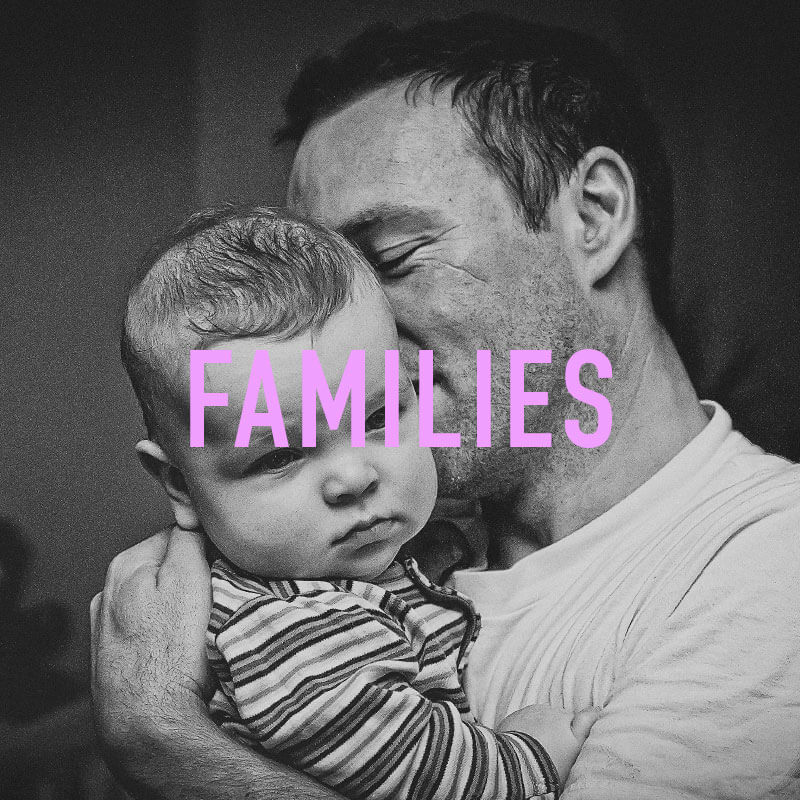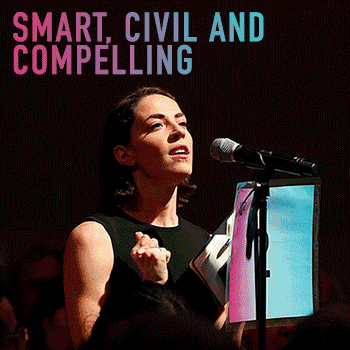Ready or not – the future is coming

Ready or not – the future is coming
Opinion + AnalysisBusiness + Leadership
BY John Neil The Ethics Centre 2 MAR 2020
We are living in an exceptional era of human history. In a blink of the historical time scale, our species now have the skills to explore the universe, map and modify human genes and develop forms of intelligence that may far surpass their creators.
In fact, given the speed, unpredictability and sheer scale of what was previously unthinkable change, it’s actually better to talk of the future in the plural rather than the singular: the ‘futures’ are coming.
With the convergence of genetic engineering, AI and neurotechnology, entirely unique challenges arise that could test our assumptions about human identity and what connects us together as a species. What does the human experience mean in an era of augmentation, implantation, enhancement and editing of the very building blocks of our being in the future? What happens when we not only hack the human body, but the human mind?
The possible futures that are coming will arrive with such speed that those not ready for them will find themselves struggling to know how to navigate and respond to a world unlike the one we currently know. Those that invest in exploring what the future holds will be well placed to proactively shape their current and future state so they can traverse the complexity, weather the challenges, and maximise the opportunities the future presents.
The Ethics Centre’s Future State Framework is a tailored, future-focused platform for change management, cultural alignment and staff engagement. It draws on futuring methodologies, including trend mapping and future scenario casting, alongside a number of design thinking and innovation methodologies. What sets Future State apart is that it incorporates ethics as the bedrock for strategic and organisational assessment and design. Ethics underpins every aspect of an organisation. An organisation’s purpose, values and principles set the foundation for its culture, gives guidance to leadership, and sets the compass needed to execute strategy.
The future world we inhabit will be built on the choices we make in the present. Yet due to the sheer complexity of the multitudes of decisions we make every day, it’s a future that is both unpredictable and emergent. The laws, processes, methods and current ways of thinking in the present may not serve us well in the future, nor contribute best to the future that we want to create. By envisioning the challenges of the future through an ethics-centred design process, the Future State Framework ensures that organisations and their culture are future-proof.
The Future State Framework has supported numerous organisations in reimagining their purpose and their unique economic and social role in a world where profit is rapidly and radically being redefined. Shareholder demand is moving beyond financial return, and social expectations toward the role of corporations are shifting dramatically into the future.
The methodology helps organisations chart a course through this transformation by mapping and targeting their desired future state and developing pathways for realising it. It been designed to support and guide both organisations facing an imminent burning platform and those wanting to be future forward and leading – giving them the insight to act with purpose – fit for the many possibilities the future might hold.
If you are interested in discussing any of the topics raised in this article in more depth with The Ethics Centre’s consulting team, please make an enquiry via our website.
Ethics in your inbox.
Get the latest inspiration, intelligence, events & more.
By signing up you agree to our privacy policy
You might be interested in…
Opinion + Analysis
Business + Leadership
Why you should care about where you keep your money
Reports
Business + Leadership
Managing Culture: A Good Practice Guide
Opinion + Analysis
Business + Leadership, Relationships, Society + Culture
Extending the education pathway
Opinion + Analysis
Business + Leadership
The great resignation: Why quitting isn’t a dirty word
BY John Neil
As Director of Education and Innovation at The Ethics Centre, John collaborates closely with a talented team of specialists and subject matter experts to shape the tools, frameworks, and programs that drive our work forward. He brings a rich and varied background as a consultant, lecturer, and researcher, with expertise spanning ethics, cultural studies, sustainability, and innovation. This multidisciplinary perspective allows him to introduce fresh, thought-provoking approaches that energise and inspire our initiatives. John has partnered with some of Australia’s largest organisations across diverse industries, to place ethics at the heart of organisational life. His work focuses on education, cultural alignment, and leadership development to foster meaningful and lasting impact.
BY The Ethics Centre
The Ethics Centre is a not-for-profit organisation developing innovative programs, services and experiences, designed to bring ethics to the centre of professional and personal life.
Disease in a Time of Uncertainty

Disease in a Time of Uncertainty
Opinion + AnalysisHealth + WellbeingPolitics + Human Rights
BY Nick Evans 19 FEB 2020
If you’re reading this, there’s a good chance you’ve heard of the outbreak of coronavirus, officially called “SARS-CoV-2”, that has caused disease primarily in Wuhan, China.
The virus, which causes a disease called coronavirus disease 2019 (COVID-19), has spread to 25 countries, infected more than 73,000 people, and caused 1,873 deaths. The World Health Organization has declared the outbreak a “Public Health Emergency International Concern” and more than 50 countries — against the WHO’s advice — have implemented travel restrictions and quarantines in an attempt to prevent the spread of the disease.
There’s been a lot of worry about this coronavirus, but arguably the thing that is driving this worry is uncertainty. It can’t be the deaths alone – fewer than 1,900 people have died of COVID-19. In contrast, since October, 14,000 people in the USA alone have died of influenza.
Unlike the 1918 influenza pandemic or the 2009 influenza pandemic, both of which killed young people faster than normal flu, the people who are dying of COVID-19 are typically old, have pre-existing diseases that make them vulnerable to pneumonia (one of the main ways COVID-19 kills you), or are heavy smokers.
Despite its rapid increase in cases in China — driven, in part, by a change in definition of how they count cases — the number of cases elsewhere has stayed relatively low.
A reported 2.5 per cent of the patients diagnosed in China have died, yet fewer than 0.4 per cent of patients elsewhere in the world have died – a bit more than seasonal flu, but not much, and not as widely.
So why the fear? And why the fantastical conspiracies: tens of thousands dead but hidden in China; a laboratory escape; or even a biological weapon? There are surely a lot of reasons: the actions of the Chinese government during the 2003 SARS outbreak; general distrust of China in a media responding to Washington’s belligerence; and some enterprising grifters out to make their name or make a buck.
Still, these all take hold in an environment of uncertainty. And in ethics, how we deal with uncertainty is a tricky case. A classic example of why uncertainty can be tricky from the perspective of ethics goes something like this.
Say I ask you to play a game: I roll a normal dice; if it lands 1-5, you get $1; if it lands on a 6, you pay me $2. To many people this seems like a good deal. Five chances to win; one to lose. You should expect, mathematically, to win 50c each game. But what if I pull out a weird, many sided dice with 120 sides. If the dice land 1-119, you get $1. But if it lands 120, I get $59. It might feel different, but the expectation (again, mathematically) remains the same.
Now imagine a huge dice in which that one chance of a loss was $10,000, or even $1 million… Part of the reason it feels different is psychological. After all, $59, or $10,000 is so much more than $2, and so even though your chances of losing are decreasing, the pit in your stomach at the thought of losing $10,000 is probably a lot more. Moreover, you’re risking that for $1 each time. Sounds like playing with fate, and you might not want to play with fate when fate could take your house if it wins.
Another part of the reason it feels different is that we don’t often encounter — or at least don’t recognise — extreme cases in our lives where we face a small chance of a huge loss. My colleagues and I have looked at this phenomena in the case of things like laboratory safety, or industrial regulations. But the same goes for things like pandemics.
Coronaviruses circulate in animal populations, usually certain species of bat, and typically don’t infect humans.
Occasionally a virus does, often through an intermediate species, and the results can be bad. It can be really hard to figure out how bad, though. So we don’t know when these viruses will appear, or how bad they are going to be.
Given that, it can be really easy to get complacent before the fact, and even easier to overreact after the outbreak starts. This leads us to take drastic actions such as to violate human rights in the name of protecting public safety (or at least appearing to protect safety), even when those actions are shown to be ineffective. But this is because instead of winning a dollar, preparedness costs us that dollar. It’s hard to get governments to spend dollars today that might not benefit us until 2030, but if we wait until we need it, we could lose everything.
It turns out that the best solution to these scary, uncertain diseases is to invest, as a society, day to day. That costs resources, but it’ll help out when the “big one,” the next 1918 flu, comes. COVID-19 is unlikely to be that kind of pandemic, but even it is testing global health systems.
We need, as a society, to get better at dealing with the uncertain, by investing in preparedness today.
Better healthcare systems; more nurses, doctors, and scientists; a more aware community; local plans for infection control that match the plans of national governments; and protections for people in quarantine so they don’t lose their livelihoods or, as is the case in some countries, have to pay for their own quarantine when they aren’t even sick.
These investments cost governments money. They cost us taxes. But if you’re scared of COVID-19, with all its uncertainty, you should be much more scared that we’re not doing the ordinary, everyday things that’ll keep us safe.
Ethics in your inbox.
Get the latest inspiration, intelligence, events & more.
By signing up you agree to our privacy policy
You might be interested in…
Opinion + Analysis
Politics + Human Rights, Relationships, Society + Culture
Of what does the machine dream? The Wire and collectivism
Opinion + Analysis
Health + Wellbeing, Relationships
Is it ok to visit someone in need during COVID-19?
Opinion + Analysis
Health + Wellbeing
Interrogating our vaccine fetish
Explainer
Business + Leadership, Politics + Human Rights
Ethics Explainer: Universal Basic Income
BY Nick Evans
Dr Nicholas G. Evans is an assistant professor of philosophy at the University of Massachusetts Lowell who focuses the majority of his research on national security and the ethics of emergent technologies. Nick also maintains an active research program on the ethics of infectious disease, with a focus on clinical and public health decision making during disease pandemics.
Respect for persons lost in proposed legislation

Respect for persons lost in proposed legislation
Opinion + AnalysisPolitics + Human RightsSociety + Culture
BY Simon Longstaff The Ethics Centre 19 FEB 2020
The Ethics Centre is a strong supporter of human rights. As such, we agree with the principal purpose of the draft Religious Discrimination Bill (2019) legislation – which is to outlaw discrimination against all persons on the basis of their religion. However, we also argue that the exposure draft is deficient in a number of important ways.
We recently made a submission articulating these concerns in response to the second exposure draft of the proposed legislation.
Core to the submission is our belief that human rights form a whole and are indivisible. That is, we are disinclined to support legislation that creates broad, general exceptions to the principle of non-discrimination. This is especially so when the proposed exceptions risk abrogating the human rights of one group in favour of another.
It’s important to make it clear that the Centre’s approach is not based on a naïve belief that human rights cohere without tension. We know that this is not the case – and understand that religion is, by its very nature, a special case.
This flows from the fact that every religion makes rival, exclusive and absolute truth claims that resist any form of independent evaluation.
Add to this religion’s appeal to transcendent authority, its inclination to order the lives of its adherents and the emotional and spiritual investment it requires of individual and communal belief – and it’s not surprising that difficulties arise not only between religions but in connection with the expression of other human rights.
Our submission seeks to affirm the universal principle of ‘respect for persons’ and to propose criteria for limiting (without totally restricting) the extent to which religious belief can be used as a justification for discrimination.
‘Respect for persons’ is the ethical requirement that we each recognise the intrinsic dignity of every other person – irrespective of their, gender, sex, race, religion, age … or any other non-relevant discriminator. It is this principle that underpins all human rights – and cannot be set aside without undermining the whole edifice.
Given this, we argue that any exception to the prohibition of discrimination that is accorded to people of faith must be severely restricted. That is, lawful discrimination, by people of faith, must only be allowed to the extent strictly necessary to avoid material harm to the religious sensibilities of those affected.
In short: we set a very high bar for those seeking to discriminate against others in the name of religion.
For example, there is a good case for allowing a religious school to discriminate against a person seeking employment as its Principal while concurrently rejecting the religious beliefs that inform the school’s defining ethos.
However, there is no good reason for applying such a test to the employment of a member of the same school’s maintenance team. Nor is there any justification for discriminating against a person based, say, on their sexual orientation if, in all other respects, the person aligns with the religious beliefs of the school – as understood by a significant number of believers.
This brings us to another aspect of the Centre’s submission – that discrimination based on religion only be allowed where there is broad consensus, amongst the faithful, that a belief is a legitimate expression of their religion. This should help avoid giving protection to those who occupy the extreme fringes of religious belief.
Finally, none of the above should be read as justifying restrictions on religious belief. On the contrary, we support the right of people to believe whatever they like. Furthermore, we encourage people to act in accordance with a well-informed (and well-formed) conscience.
We also urge people to realise that to act in good conscience entails the possibility of being punished if your conduct is found to be contrary to law. Such is the case of conscientious objectors who resist conscription into the armed forces, or Roman Catholic priests who choose to respect the ‘seal of the confessional’ even if the law compels them to disclose specified admissions by penitents.
This is the balance that a society needs to maintain: respecting the moral courage of those whose religious beliefs compel them to act in a manner that society must prohibit for the sake of all.
For those who are interested, The Ethics Centre’s submission on the proposed legislation will be published by the Commonwealth Attorney General’s Department in due course.
Ethics in your inbox.
Get the latest inspiration, intelligence, events & more.
By signing up you agree to our privacy policy
You might be interested in…
Big thinker
Politics + Human Rights, Relationships
Big Thinker: Adam Smith
Explainer
Politics + Human Rights
Ethics Explainer: Rights and Responsibilities
Opinion + Analysis
Politics + Human Rights, Relationships
Who’s your daddy?
Opinion + Analysis
Health + Wellbeing, Society + Culture
Alpha dogs and the toughness trap: How we can redefine modern masculinity
BY Simon Longstaff
Simon Longstaff began his working life on Groote Eylandt in the Northern Territory of Australia. He is proud of his kinship ties to the Anindilyakwa people. After a period studying law in Sydney and teaching in Tasmania, he pursued postgraduate studies as a Member of Magdalene College, Cambridge. In 1991, Simon commenced his work as the first Executive Director of The Ethics Centre. In 2013, he was made an officer of the Order of Australia (AO) for “distinguished service to the community through the promotion of ethical standards in governance and business, to improving corporate responsibility, and to philosophy.” Simon is an Adjunct Professor of the Australian Graduate School of Management at UNSW, a Fellow of CPA Australia, the Royal Society of NSW and the Australian Risk Policy Institute.
BY The Ethics Centre
The Ethics Centre is a not-for-profit organisation developing innovative programs, services and experiences, designed to bring ethics to the centre of professional and personal life.
McKenzie... a fractured cog in a broken wheel

McKenzie… a fractured cog in a broken wheel
Opinion + AnalysisPolitics + Human Rights
BY Simon Longstaff The Ethics Centre 18 FEB 2020
In many cases, the response to scandal is often as instructive as an assessment of its cause. So it has proved to be in the case of the issues that led to the resignation of Senator Bridget McKenzie as a Federal Government Minister.
The findings of the Auditor General unleashed a fair amount of anger and disgust – especially amongst community groups who were deemed to be meritorious recipients of funding but who missed out due to political considerations.
While I understand the outrage, strong emotions can make us blind to areas of ethical importance. As citizens, we need to notice the rapid normalisation of deviance that is eroding the foundations of our representative democracy.
In this, we should look to the insights of Edmund Burke who recognised the role played by traditions and conventions in maintaining the integrity of institutions and societies.
Those who know my writings might be surprised to find me ‘channelling’ Burke. For three decades, I have warned of the perils of unthinking custom and practice. But note that my target has always been practices and arrangements that are unthinking. I am a great admirer of customs and practices that derive their life from a conscious application of purpose, values and principles.
Too often, it is the dead hand of tradition that leads institutions to betray their underlying purposes, lose legitimacy and invite revolution. In that sense, I think that Edmund Burke and I would be in perfect accord.
I also think that Burke would be deeply concerned by the radical turn away from convention taken by the government of Prime Minister, Scott Morrison, in response to the ANAO’s ‘Sports Rort’ Report.
The government’s response has been marked by a persistent refusal to acknowledge and uphold, in practice, a couple of fundamental principles. First, that public power and monies (levied by taxes) should be used exclusively for public purposes. Second, that Ministers are responsible for all that is done in their name.
Instead, the government and its representatives have sought to distract the public by laying some false trails. They have claimed that ‘no rules were broken’. They have argued that the ‘ends justified the means’. They have suggested that the Minister should be excused from responsibility for the activities of her advisers (and possibly advisers in the offices of other ministers) who shaped decisions according to the political interests of the Coalition parties.
The fact that Senator McKenzie resigned over a ‘technical breach’ of the Ministerial Code – without any sense of remorse or censure for the way she exercised discretion in the allocation of public funds – has reinforced the public’s perception that politics and ethics have become estranged.
Just the other day someone said to me, “I can’t believe you expected anything different …”. The person then paused, in mid-sentence, and said, “Did I really just say that …? What has happened to us?”. Indeed, how have we come to accept such low standards as ‘normal’? When will we realise that we are being robbed of our reasonable expectations as citizens in a democracy?
Our government’s behaviour may deserve moral censure. However, we should not let this obscure the fact that its response to the ‘Sports Rort’ reveals a woeful lack of commitment to the preconditions for a functioning representative democracy. It is this, more than anything else, that should really worry us.
“Our government’s behaviour may deserve moral censure. However, we should not let this obscure the fact that its response to the ‘Sports Rort’ reveals a woeful lack of commitment to the preconditions for a functioning representative democracy.”
One result of a lack of clear commitment to ethics within government has been the growing demand for a Federal Integrity Commission. The idea is popular with the general public – who are sick of being held accountable for their conduct while watching the most powerful people in the nation letting each other off the hook. Given this, the major political parties are committed to the creation of this new, independent oversight body.
Personally, I think it incredibly sad that it has come to this. That multiple generations of politicians, from across the political spectrum, have made this necessary is an indictment of their stewardship of our democratic institutions.
However, if it is to be done, then it must be done well. There is no point in the Parliament putting in place a ‘paper tiger’ limited to reviewing the most extreme cases of ethical failure by the smallest possible subset of public officials. It is for that reason, I support the Beechworth Principles which were launched this week.
We deserve governments that earn our trust and preserve their legitimacy. Is that really too much to ask of our politicians?
Ethics in your inbox.
Get the latest inspiration, intelligence, events & more.
By signing up you agree to our privacy policy
You might be interested in…
Explainer
Society + Culture, Politics + Human Rights
Thought experiment: The original position
Opinion + Analysis
Politics + Human Rights, Relationships
To deal with this crisis, we need to talk about ethics, not economics
Opinion + Analysis
Politics + Human Rights
The Australian debate about asylum seekers and refugees
Opinion + Analysis
Politics + Human Rights
Nurses and naked photos
BY Simon Longstaff
Simon Longstaff began his working life on Groote Eylandt in the Northern Territory of Australia. He is proud of his kinship ties to the Anindilyakwa people. After a period studying law in Sydney and teaching in Tasmania, he pursued postgraduate studies as a Member of Magdalene College, Cambridge. In 1991, Simon commenced his work as the first Executive Director of The Ethics Centre. In 2013, he was made an officer of the Order of Australia (AO) for “distinguished service to the community through the promotion of ethical standards in governance and business, to improving corporate responsibility, and to philosophy.” Simon is an Adjunct Professor of the Australian Graduate School of Management at UNSW, a Fellow of CPA Australia, the Royal Society of NSW and the Australian Risk Policy Institute.
BY The Ethics Centre
The Ethics Centre is a not-for-profit organisation developing innovative programs, services and experiences, designed to bring ethics to the centre of professional and personal life.
The youth are rising. Will we listen?

The youth are rising. Will we listen?
Opinion + AnalysisClimate + EnvironmentPolitics + Human RightsRelationshipsSociety + Culture
BY Danielle Harvey The Ethics Centre 18 FEB 2020
When we settled on Town Hall as the venue for the Festival of Dangerous Ideas (FODI) 2020, my first instinct was to consider a choir. The venue lends itself to this so perfectly and the image of a choir – a group of unified voices – struck me as an excellent symbol for the activism that is defining our times.
I attended Spinifex Gum in Melbourne last year, and instantly knew that this was the choral work for the festival this year. The music and voices were incredibly beautiful but what struck me most was the authenticity of the young women in Marliya Choir. The song cycle created by Felix Riebel and Lyn Gardner for Marliya Choir embarks on a truly emotional journey through anger, sadness, indignation and hope.
A microcosm of a much larger phenomenon, Marliya’s work shows us that within these groups of unified voices the power of youth is palpable.
Every city, suburb and school has their own Greta Thurnbergs: young people acutely aware of the dangerous reality we are now living in, who are facing the future knowing that without immediate and significant change their future selves will risk incredible hardship.
In 2012, FODI presented a session with Shiv Malik and Ed Howker on the coming inter-generational war, and it seems this war has well and truly begun. While a few years ago the provocations were mostly around economic power, the stakes have quickly risen. Now power, the environment, quality of life, and the future of the planet are all firmly on the table. This has escalated faster than our speakers in 2012 were predicting.
For a decade now the FODI stage has been a place for discussing uncomfortable truths. And it doesn’t get more uncomfortable than thinking about the future world and systems the young will inherit.
What value do we place on a world we won’t be participating in?
Our speakers alongside Marliya Choir will be tackling big issues from their perspective: mental health, gender, climate change, indigenous incarceration, and governance.
First Nation Youth Activist Dujuan Hoosan, School Strike for Climate’s Daisy Jeffery, TEDx speaker Audrey Mason-Hyde , mental health advocate Seethal Bency and journalist Dylan Storer add their voices to this choir of young Australians asking us to pay attention.
Aged from 12 to 21, their courage in stepping up to speak in such a large forum is to be commended and supported.
With a further FODI twist, you get to choose how much you wish to pay for this session. You choose how important you think it is to listen to our youth. What value do you put on the opinions of the young compared to our established pundits?
Unforgivable is a new commission, combining the music from the incredible Spinifex Gum show I saw, with new songs from the choir and some of the boldest young Australian leaders, all coming together to share their hopes and fears about the future.
It is an invitation to come and to listen. To consider if you share the same vision of the future these young leaders see. Unforgivable is an opportunity to see just what’s at stake in the war that is raging between young and old.
These are not tomorrow’s leaders, these young people are trying to lead now.
Tickets to Unforgivable, at the Festival of Dangerous Ideas on Saturday 4 April are on sale now.
Ethics in your inbox.
Get the latest inspiration, intelligence, events & more.
By signing up you agree to our privacy policy
You might be interested in…
Opinion + Analysis
Politics + Human Rights
The rights of children
Opinion + Analysis
Relationships
Would you kill one to save five? How ethical dilemmas strengthen our moral muscle
Opinion + Analysis
Business + Leadership, Politics + Human Rights
Character and conflict: should Tony Abbott be advising the UK on trade? We asked some ethicists
Opinion + Analysis
Politics + Human Rights, Society + Culture
When our possibilities seem to collapse
BY Danielle Harvey
Danielle Harvey is Festival Director of the Festival of Dangerous Ideas. A curator, creative producer and director, Harvey works across live performance, talks, installation, and digital spaces, creating layered programs that connect deeply with audiences.
BY The Ethics Centre
The Ethics Centre is a not-for-profit organisation developing innovative programs, services and experiences, designed to bring ethics to the centre of professional and personal life.
This is what comes after climate grief

This is what comes after climate grief
Opinion + AnalysisClimate + EnvironmentPolitics + Human RightsRelationships
BY Ketan Joshi The Ethics Centre 21 JAN 2020
I can’t really lie about this. Like so many other people in the climate community hailing from Australia, I expected the impacts of climate change to come later. I didn’t define ‘later’ as much other than ‘not now, not next year, but some time after that’.
Instead, I watched in horror as Australia burst into flames. As the worst of the fire season passes, a simple question has come to the fore. What made these bushfires so bad?
The Bureau of Meteorology confirms that weather conditions have been tilting in favour of worsening fire for many decades. The ‘Forest Fire Danger Index’, a metric for this, hit records in many parts of Australia, this summer.
The Earth Systems and Climate Change Hub is unequivocal: “Human-caused climate change has resulted in more dangerous weather conditions for bushfires in recent decades for many regions of Australia…These trends are very likely to increase into the future”.
Bushfire has been around for centuries, but the burning of fossil fuels by humans has catalysed and worsened it.
Having moved away from Australia, I didn’t experience the physical impacts of the crisis. Not the air thick with smoke, or the dark brown sky or the bone-dry ground.
But I am permanently plugged into the internet, and the feelings expressed there fed into my feed every day. There was shock at the scale and at the science fictionness of it all. Fire plumes that create their own lightning? It can’t be real.
The world grieved at the loss of human life, the loss of beautiful animals and ecosystems, and the permanent damage to homes and businesses.
Rapidly, that grief pivoted into action. The fundraisers were numerous and effective. Comedian Celeste Barber, who set out to raise an impressive $30,000 AUD, ended up at around $51 million. Erin Riley’s ‘Find a Bed’ program worked tirelessly to help displaced Australians find somewhere to sleep. Australians put their heads down and got to work.
It’s inspiring to be a part of. But that work doesn’t stop with funding. Early estimates on the emissions produced by the fires are deeply unsettling. “Our preliminary estimates show that by now, CO2 emissions from this fire season are as high or higher than the CO2 emissions from all anthropogenic emissions in Australia. So effectively, they are at least doubling this year’s carbon footprint of Australia”, research scientist Pep Canadell told Future Earth.
There is some uncertainty about whether the forests destroyed by the blaze will grow back and suck that released carbon back into the Earth. But it is likely that as fire seasons get worse, the balance of the natural flow of carbon between the ground and the sky will begin to tip in a bad direction.
Like smoke plumes that create their own ‘dry lightning’ that ignite new fires, there is a deep cyclical horror to the emissions of bushfire.
It taps into a horror that is broader and deeper than the immediate threat; something lingers once the last flames flicker out. We begin to feel that the planet’s physical systems are unresponsive. We start to worry that if we stopped emissions, these ‘positive feedbacks’ (a classic scientific misnomer) mean we’re doomed regardless of our actions.
“An epidemic of giving up scares me far more than the predictions of climate scientists”, I told an international news journalist, as we sat in a coffee shop in Oslo. It was pouring rain, and it was warm enough for a single layer and a raincoat – incredibly strange for the city in January.
She seemed surprised. “That scares you?” she asked, bemused. Yes. If we give up, emissions become higher than they would be otherwise, and so we are more exposed to the uncertainties and risks of a planet that starts to warm itself. That is paralysing, to me.
It is scarier than the climate change denial of the 2010s, because it has far greater mass appeal. It’s just as pseudoscientific as denialism. “Climate change isn’t a cliff we fall off, but a slope we slide down”, wrote climate scientist Kate Marvel, in late 2018.
In response to Jonathan Franzen’s awful 2019 essay in which he urges us to give up, Marvel explained why ‘positive feedbacks’ are more reason to work hard to reduce emissions, not less. “It is precisely the fact that we understand the potential driver of doom that changes it from a foregone conclusion to a choice”.
A choice. Just as the immediate horrors of the fires translated into copious and unstoppable fundraising, the longer-term implications of this global shift in our habitat could precipitate aggressive, passionate action to place even more pressure on the small collection of companies and governments that are contributing to our increasing danger.
There are so many uncertainties inherent in the way the planet will respond to a warming atmosphere. I know, with absolute certainty, that if we succumb to paralysis and give up on change, then our exposure to these risks will increase greatly.
We can translate the horror of those dark red months into a massive effort to change the future. Our worst fears will only be realised if we persist with the intensely awful idea that things are so bad that we ought to give up.
Ethics in your inbox.
Get the latest inspiration, intelligence, events & more.
By signing up you agree to our privacy policy
You might be interested in…
Opinion + Analysis
Business + Leadership, Politics + Human Rights, Relationships
It’s time to increase racial literacy within our organisations
Opinion + Analysis
Politics + Human Rights
Ethics Explainer: Testimonial Injustice
Explainer
Society + Culture, Politics + Human Rights
Ethics Explainer: Just Punishment
Opinion + Analysis
Health + Wellbeing, Relationships
Ageing well is the elephant in the room when it comes to aged care
BY Ketan Joshi
Was a speaker at IQ2: It's too soon to ditch fossil fuels. He is a science communicator with over eight years experience across The Monthly, Gizmodo, Cosmos and with the CSIRO.
BY The Ethics Centre
The Ethics Centre is a not-for-profit organisation developing innovative programs, services and experiences, designed to bring ethics to the centre of professional and personal life.
Extending the education pathway

Extending the education pathway
Opinion + AnalysisBusiness + LeadershipRelationshipsSociety + Culture
BY The Ethics Centre 16 JAN 2020
In the course of 2019, The Ethics Centre reviewed and adopted a new strategy for the five years to 2024.
The key insight to emerge from the strategic planning process was that the Centre should focus on growing its impact through innovation, partnerships, platforms and pathways.
We focus here on just one of those factors – ‘pathways’ and, in particular, the education pathway.
The Ethics Centre is not new to the education game. To this day, the establishment of Primary Ethics – which teaches tens of thousands of primary students every week in NSW – is one of our most significant achievements.
As Primary Ethics continues to break new ground, we feel it’s time to bring our collective skills to bear along the broader education pathway.
With this in mind, we’re delighted to report that The Ethics Centre and NSW Department of Education and Training have signed a partnership to develop curriculum resources and materials to support the teaching and learning of ethical deliberation skills in NSW schools, including within existing key learning areas.
This exciting project will see us working with and through the Department’s Catalyst Innovation Lab alongside gifted teachers and curriculum experts – rather than merely seeking to influence from the outside.
In addition, we have also formed a further partnership with one of the Centre’s Ethics Alliance members, Knox Grammar School. This will involve the establishment of an ‘Ethicist-in-residence’ at the school, the application of new approaches to exploring ethical challenges faced by young adults, and the development of a pilot program where students in their final years of secondary education undertake an ethics fellowship at the Centre.
In due course, we hope that the work pioneered in these two partnerships and others will produce scalable platforms that can be extended across Australia. Detailed plans come next, and we believe the potential for impact along this pathway is significant.
We believe ethics education is a central component of lifelong learning – extending from the earliest days of schooling through secondary schooling, higher education and into the workplace.
The broadening of the education pathway therefore provides new opportunities for The Ethics Centre and Primary Ethics to work together – sharing our complementary skills and experience in service of our shared objectives, for the common good.
If you have an interest in supporting this work, at any point along the pathway, then please contact Dr Simon Longstaff at The Ethics Centre, or Evan Hannah, who leads the team at Primary Ethics.
Dr Simon Longstaff is Executive Director of The Ethics Centre: www.ethics.org.au
Evan Hannah can be contacted via Primary Ethics at: www.primaryethics.com.au
Ethics in your inbox.
Get the latest inspiration, intelligence, events & more.
By signing up you agree to our privacy policy
You might be interested in…
Explainer
Business + Leadership
Ethics Explainer: Ethical Infrastructure
Explainer
Politics + Human Rights, Relationships
Ethics Explainer: Critical Race Theory
Opinion + Analysis
Society + Culture
Rethinking the way we give
Opinion + Analysis
Business + Leadership
The truth isn’t in the numbers
BY The Ethics Centre
The Ethics Centre is a not-for-profit organisation developing innovative programs, services and experiences, designed to bring ethics to the centre of professional and personal life.
A burning question about the bushfires

A burning question about the bushfires
Opinion + AnalysisClimate + EnvironmentPolitics + Human RightsRelationships
BY Simon Longstaff The Ethics Centre 16 JAN 2020
At the height of the calamity that has been the current bushfire season, people demanded to know why large parts of our country were being ravaged by fires of a scale and intensity seldom seen.
In answer, blame has been sheeted home to the mounting effects of climate change, to failures in land management, to our burgeoning population, to the location of our houses, to the pernicious deeds of arsonists…
However, one thing has not made the list, ethical failure.
I suspect that few people have recognised the fires as examples of ethical failure. Yet, that is what they are. The flames were fuelled not just by high temperatures, too little rain and an overabundance of tinder-dry scrub. They were also the product of unthinking custom and practice and the mutation of core values and principles into their ‘shadow forms’.
Bushfires are natural phenomena. However, their scale and frequency are shaped by human decisions. We know this to be true through the evidence of how Indigenous Australians make different decisions – and in doing so – produce different effects.
Our First Nations people know how to control fire and through its careful application help the country to thrive. They have demonstrated (if only we had paid attention) that there was nothing inevitable about the destruction unleashed over the course of this summer. It was always open to us to make different choices which, in turn, would have led to different outcomes.
This is where ethics comes in. It is the branch of philosophy that deals with the character and quality of our decisions; decisions that shape the world. Indeed, constrained only by the laws of nature, the most powerful force on this planet is human choice. It is the task of ethics to help people make better choices by challenging norms that tend to be accepted without question.
This process asks people to go back to basics – to assess the facts of the matter, to challenge assumptions, to make conscious decisions that are informed by core values and principles. Above all, ethics requires people to accept responsibility for their decisions and all that follows.
This catastrophe was not inevitable. It is a product of our choices.
For example, governments of all persuasions are happy to tell us that they have no greater obligation than to keep us safe. It is inconceivable that our politicians would ignore intelligence suggesting that a terrorist attack might be imminent. They would not wait until there was unanimity in the room. Instead, our governments would accept the consensus view of those presenting the intelligence and take preventative action.
So, why have our political leaders ignored the warnings of fire chiefs, defence analysts and climate scientists? Why have they exposed the community to avoidable risks of bushfires? Why have they played Russian Roulette with our future?
It can only be that some part of society’s ‘ethical infrastructure’ is broken.
In the case of the fires, we could have made better decisions. Better decisions – not least in relation to the challenges of global emissions, climate change, how and where we build our homes, etc. – will make a better world in which foreseeable suffering and destruction is avoided. That is one of the gifts of ethics.
Understood in this light, there is nothing intangible about ethics. It permeates our daily lives. It is expressed in phenomena that we can sense and feel.
So, if anyone is looking for a physical manifestation of ethical failure – breathe the smoke-filled air, see the blood-red sky, feel the slap from a wall of heat, hear the roar of the firestorm.
The fires will subside. The rains will come. The seasons will turn. However, we will still be left to decide for the future. Will our leaders have the moral courage to put the public interest before their political fortunes? Will we make the ethical choice and decide for a better world?
It is our task, at The Ethics Centre, to help society do just that.
Ethics in your inbox.
Get the latest inspiration, intelligence, events & more.
By signing up you agree to our privacy policy
You might be interested in…
Explainer
Relationships
Ethics explainer: Cultural Pluralism
Opinion + Analysis
Politics + Human Rights, Relationships
Why we should be teaching our kids to protest
Opinion + Analysis
Relationships
We need to talk about ageism
Opinion + Analysis
Relationships
TEC announced as 2018 finalist in Optus My Business Awards
BY Simon Longstaff
Simon Longstaff began his working life on Groote Eylandt in the Northern Territory of Australia. He is proud of his kinship ties to the Anindilyakwa people. After a period studying law in Sydney and teaching in Tasmania, he pursued postgraduate studies as a Member of Magdalene College, Cambridge. In 1991, Simon commenced his work as the first Executive Director of The Ethics Centre. In 2013, he was made an officer of the Order of Australia (AO) for “distinguished service to the community through the promotion of ethical standards in governance and business, to improving corporate responsibility, and to philosophy.” Simon is an Adjunct Professor of the Australian Graduate School of Management at UNSW, a Fellow of CPA Australia, the Royal Society of NSW and the Australian Risk Policy Institute.
BY The Ethics Centre
The Ethics Centre is a not-for-profit organisation developing innovative programs, services and experiences, designed to bring ethics to the centre of professional and personal life.
How to respectfully disagree

We seem to have no trouble hurling opinions at each other. It is easy enough to form into irresistible blocks of righteous indignation. But discussion – why do we find it so hard?
What happened to the serious playfulness that used to allow us to pick apart an argument and respectfully disagree? When did life become ‘all or nothing’, a binary choice between ‘friend or foe’?
Perhaps this is what happens when our politics and our media come to believe they can only thrive on a diet of intense difference. Today, every issue must have its champions and villains. Things that truly matter just overwhelm us with their significance. Perhaps we feel ungainly and unprepared for the ambiguities of modern life and so clutch on to simple certainties.
Today, every issue must have its champions and villains. Perhaps we feel ungainly and unprepared for the ambiguities of modern life and so clutch on to simple certainties.
Indeed, I think this must be it. Most of us have a deep-seated dislike of ambiguity. We easily submit to the siren call of fundamentalists in politics, religion, science, ethics… whatever. They sing to us of a blissful state within which they will decide what needs to be done and release us from every burden except obedience.
But there is a price to pay for certainty. We must pay with our capacity to engage with difference, to respect the integrity of the person who holds a principled position opposed to our own. It is a terrible price we pay.
The late, great cultural theorist and historian Robert Hughes ended his history of Australia, The Fatal Shore, with an observation we would do well to heed.
“The need for absolute goodies and absolute baddies runs deep in us, but it drags history into propaganda and denies the humanity of the dead: their sins, their virtues, their failures. To preserve complexity, and not flatten it under the weight of anachronistic moralising, is part of the historian’s task.”
And so it is for the living. The ‘flat man’ of history is quite unreal. The problem is too many of us behave as if we are surrounded by such creatures. They are the commodities of modern society, the stockpile to be allocated in the most efficient and economical manner.
Each of them has a price because none of them is thought to be of intrinsic value. Their beliefs are labels, their deeds are brands. We do not see the person within. So, we pitch our labels against theirs – never really engaging at a level below the slogan.
It was not always so. It need not be so.
I have learned one of the least productive things one can do is seek to prove to another person they are wrong. Despite knowing this, it is a mistake I often make and always end up wishing I had not.
The moment you set out to prove the error of another person is the moment they stop listening to you. Instead, they put up their defences and begin arranging counter-arguments (or sometimes just block you out).
Far better it is to make the attempt (and it must be a sincere attempt) to take the person and their views entirely seriously. You have to try to get into their shoes, to see the world through their eyes. In many cases people will be surprised by a genuine attempt to understand their perspective. In most cases they will be intrigued and sometimes delighted.
The aim is to follow the person and their arguments to a point where they will go no further in pursuit of their own beliefs. Usually, the moment presents itself when your interlocutor tells you there is a line, a boundary they will not cross. That is when the discussion begins.
At that point, it is reasonable to ask, “Why so far, but no further?” Presented as a case of legitimate interest (and not as a ‘gotcha’ moment) such a question unlocks the possibility of a genuinely illuminating discussion.
To follow this path requires mutual respect. Recognition that people of good will can have serious disagreements without either of them being reduced to a ‘monstrous’ flat man of history. It probably does not help that so much social media is used to blaze emotion or to rant and bully under cover of anonymity. People now say and do online things few would dare if standing face-to-face with another.
It probably does not help that we are becoming desensitised to the pain we cause the invisible victims of a cruel jibe or verbal assault. Nor does it help that the liberty of free speech is no longer understood to be matched by an implied duty of ethical restraint.
I am hoping the concept of respectful disagreement might make a comeback. I am hoping we might relearn the ability to discuss things that really matter – those hot, contentious issues that justifiably inflame passions and drive people to the barricades. I am hoping we can do so with a measure of good will. If there is to be a contest of ideas, then let it be based on discussion.
Then we might discover there are far more bad ideas than there are bad people.
Ethics in your inbox.
Get the latest inspiration, intelligence, events & more.
By signing up you agree to our privacy policy
You might be interested in…
Opinion + Analysis
Health + Wellbeing, Relationships
Are there any powerful swear words left?
Opinion + Analysis
Relationships
It takes a village to raise resilience
WATCH
Relationships
Deontology
Opinion + Analysis
Health + Wellbeing, Relationships
How to pick a good friend
BY Simon Longstaff
Simon Longstaff began his working life on Groote Eylandt in the Northern Territory of Australia. He is proud of his kinship ties to the Anindilyakwa people. After a period studying law in Sydney and teaching in Tasmania, he pursued postgraduate studies as a Member of Magdalene College, Cambridge. In 1991, Simon commenced his work as the first Executive Director of The Ethics Centre. In 2013, he was made an officer of the Order of Australia (AO) for “distinguished service to the community through the promotion of ethical standards in governance and business, to improving corporate responsibility, and to philosophy.” Simon is an Adjunct Professor of the Australian Graduate School of Management at UNSW, a Fellow of CPA Australia, the Royal Society of NSW and the Australian Risk Policy Institute.
The virtues of Christmas

The virtues of Christmas
Opinion + AnalysisHealth + Wellbeing
BY John Neil The Ethics Centre 20 DEC 2019
Christmas is upon us. It’s a time of giving. A time for celebrating with family and love ones. And a time to navigate a number of sticky ethical challenges.
It starts early in the morning; the gifts are distributed, and you unwrap Grandma’s exquisitely wrapped parcel only to reveal a hideous pair of underwear that may have once been in fashion during the great depression. You immediately call on your best poker face, but it may have already betrayed your disappointment. Should you lie and say, ‘thanks Nan, I really love them?’
Next comes the Christmas lunch tirade; you’re seated next to an opinionated uncle you only see once a year at Christmas who, predictably, after too many of his favourite Christmas beverages begins an annual festive diatribe that escalates rapidly from the opinionated to the offensive. Do you speak your mind?
Finally, the inevitable clash with your mother in law; she cannot help being critical about everything surrounding the festivities. The inevitable flare-up will happen after clearing away lunch, which you like to refer to it as the annual arm wrestle, a well-worn conflict over everything from how to stack the dishwasher to how the kids can and cannot play. This year will no doubt be worse as you are hosting the event. Do you stand your ground?
Most of us ask “What should I do?” when we think about ethics. However, we can approach it another way by asking, “What kind of person should I be?” Philosophical thinkers in this tradition turn to virtue ethics for the answers.
While it’s one thing to ask what kind of person should I be, it’s another thing to know how to live as that person. For Aristotle the answer to both of these questions is to act virtuously. Acting as though we already possess the best virtues is how we develop a virtuous character.
And if ever there was a time to test out the virtues of our character, it’s Christmas.
Virtue ethics, unlike other approaches, does not provide specific rules for addressing ethical questions. Instead, good actions are those that a person of good character would display. Aristotle, one of the most influential philosophers in this tradition, developed a comprehensive system of virtue ethics.
Let’s take a look at how it can help us navigate the minefield of Christmas’ annual dilemmas.
The underwear from Grandma? If asking what should you do, you might take a lead from consequentialism. You could simply smile and say ‘I love it Grandma’. After all, she meant well, a white lie makes her happy, keeps the economy ticking and doesn’t rock the family emotional boat. It produces the best overall outcome.
Other philosophers might suggest a different approach. Those in the deontological tradition, such as Immanuel Kant would argue that lying of any kind is unethical, even those white lies that are intended to spare someone’s feelings.
Unlike other approaches to ethics, virtue ethics does not rely on rules to guide action. While ‘do not lie,’ is a rule, ‘being honest’ is a virtue.
However, a virtue, on its own, doesn’t tell us too much that is helpful because virtues are interrelated, you can’t have one virtue without having others. To have a virtue is to be a particular type of person with a particular mindset and outlook on life. They are what’s called a ‘multi-track disposition’ – they go all the way down.
Honesty is not the only virtue at stake here. Acting virtuously requires us to calibrate between virtues. Because Grandma has the best intentions, she will no doubt take your honesty to heart. Honestly speaking your mind could be selfish at one extreme, and while a white lie at the other end might be considered selfless. What sits between these extremes Aristotle called the Golden Mean.
What would a fair person do? They might tell Grandma that they appreciate the thought but would like to do justice to her intentions by exchanging the gift for something that they will like, wear and remember Grandma every time they put it on.
So, let’s see what virtue ethics can teach us about managing that outspoken uncle. Imagine that dessert is now served and your uncle has flipped the switch to obnoxious. You try and avoid engaging with his tirades every year, but this year he is particularly offensive. His views are not only a dampener on the festive feels, but several members of the family are visibly hurt and upset by some of his more extreme views.
All families have their patterns that play out when people come together and the pre-determined roles we all play are difficult to shift.
What would we do if we were already a virtuous person? By imagining what a virtuous character would do in this situation we can start to practically explore how to become the best version of ourselves.
In the virtue ethics approach imagination is important in helping to shift unthinking and prescribed patterns of behaviours. What would we do if we were already a virtuous person? By imagining what a virtuous character would do in this situation we can start to practically explore how to become the best version of ourselves.
A virtuous person might ask themselves ‘how would I like to be treated if I were them?’ This particular uncle may not have many opportunities in their daily life to be heard. In many of the virtue ethics traditions compassion is a cardinal virtue. Exercising the virtue of compassion allows us to not only avoid rushing to judgement, but also gives us space to disarm the triggers that usually fire off in response to his toxic views.
The virtue of temperance – self-control and restraint – also helps here. While his views may trigger you strongly, appealing to logic with counterarguments will most likely not be effective.
It is almost impossible to change a person’s strongly held views with counter-logic. Paraphrasing back the points and emotions they are expressing not only lets them know their experience matters but also provides a circuit breaker by reflecting back their views. Research suggests that engaging in this way can make someone feel more understood and, as a result, less defensive or difficult.
When unsure about what the best virtue looks like in practice, virtue ethics suggests looking to someone of good character for direction by imagining how they would act in the same situation. Moral exemplars are an important feature of virtue ethics. Ethics is messy and no decision procedure provides a precise algorithm which will tell us definitively what to do when faced with difficult choices. Moral exemplars are people in our world who possess the best form of the virtues. Knowing what to do is not simply a matter of internalising a rule; for Aristotle virtue ethics it is about doing the right thing at the right time, in the right way and for the right reason. Moral exemplars help show us the way.
So, when it comes to the inevitable clash with your mother in law, imagine what someone you admire most would do. A moral exemplar might act intentionally with the virtues of humility, grace and generosity, showing her that what is important in hosting Christmas is not the power struggle to control the day but respecting differences and others’ boundaries. They might find ways to include some of her traditions in the day.
The development of character is at the heart of virtue ethics. We develop that character throughout our life through the virtues and in doing so we make wise choices.
This Christmas people may be looking at you to be that person.
Ethics in your inbox.
Get the latest inspiration, intelligence, events & more.
By signing up you agree to our privacy policy
You might be interested in…
Opinion + Analysis
Health + Wellbeing
The moral life is more than carrots and sticks
Opinion + Analysis
Health + Wellbeing, Relationships
How to pick a good friend
Opinion + Analysis
Health + Wellbeing, Politics + Human Rights, Relationships
CoronaVirus reveals our sinophobic underbelly
Opinion + Analysis
Health + Wellbeing, Business + Leadership


















































